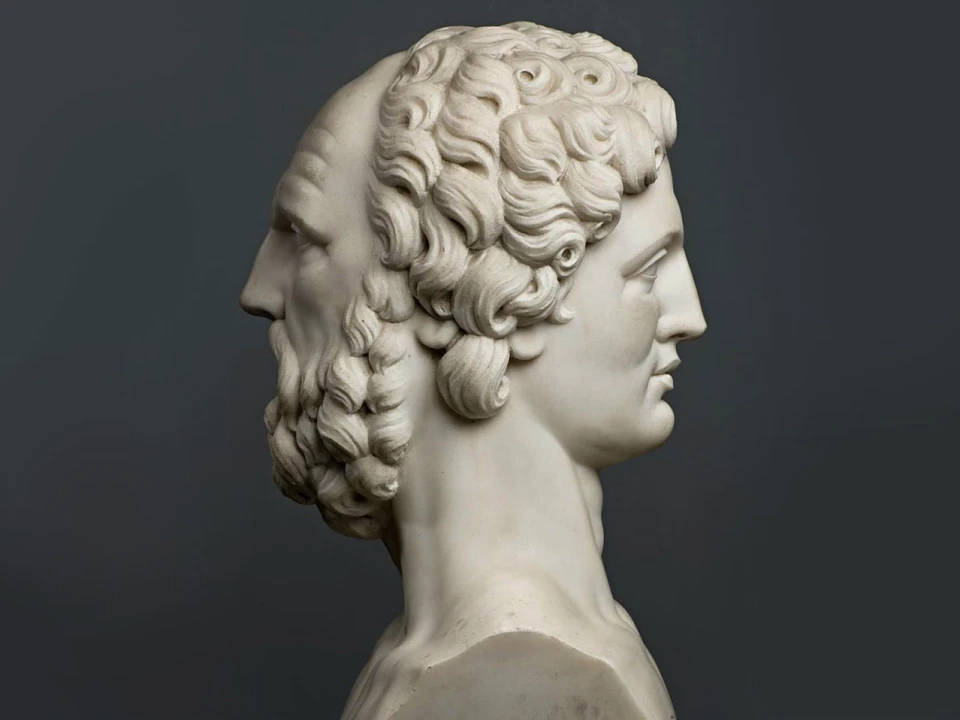In Ancient Rome, New Year's Eve was not just a simple calendar transition—it was an extravagant, high-energy affair that set the tone for the entire year. The Romans were known for their grand public celebrations, and New Year's Eve was no exception. This night was not only a time of reflection but also one filled with festivities, religious rituals, and lavish displays of wealth and power.
The Romans were masters of throwing a party, and they made sure that their New Year's Eve celebrations were as grand as any event in history. New Year’s was deeply tied to their religious beliefs. The celebration marked the beginning of the month of January, which was dedicated to Janus, the god of beginnings and transitions.
Janus, often depicted with two faces, one looking forward and the other looking back, symbolized the passage of time and the idea of reflection and anticipation. The Romans would offer sacrifices and prayers to Janus, hoping for a prosperous and harmonious year ahead.
The first day of the year, known as the Kalends of January, was observed with various rituals. Romans believed that the god Janus presided over both the past and the future, and they would look to him for blessings on both ends. New Year’s Eve itself was about honoring Janus and setting the tone for the year to come. Romans often decorated their homes with symbols of Janus, including images of his two-faced visage, which were meant to invoke good fortune and protection.
New Year's Eve in Ancient Rome was also a night of indulgence, with feasts and revelry in abundance. The Romans loved their food and wine, and this was the perfect occasion to indulge in both. Wealthy Romans would host lavish banquets in their homes, where guests were treated to luxurious dishes, fine wines, and a feast of entertainment. These parties often went late into the night, filled with music, dancing, and extravagant displays of wealth.
In addition to the feasts, the Romans engaged in the tradition of exchanging gifts on New Year’s Eve. The practice was meant to ensure good fortune for the year ahead, and gifts were often symbolic of prosperity and good luck. Common gifts included small figurines, food, and other tokens of goodwill. This exchange of gifts was not just about materialism; it was a social ritual that helped strengthen relationships between friends, family, and political allies.
The festivities of Ancient Rome’s New Year’s Eve were not reserved only for the elite. While the upper classes enjoyed lavish banquets, even the common people could partake in the celebrations, albeit in different ways. Public events were held in the streets, where citizens could gather to celebrate with music and dance. The contrast between the opulence of the aristocracy and the exuberance of the common folk created a dynamic energy throughout the city.
For the lower classes, this was also a time to celebrate the New Year’s offerings of food and drink, often with large public meals and gatherings. Although their festivities were less grandiose than those of the elite, the joy and camaraderie of the common people brought a different dimension to the night’s celebrations. The streets were alive with laughter, music, and shared revelry, as the entire city seemed to come together to celebrate the changing of the year.
In addition to the festive aspects, the Romans also believed that the New Year’s Eve celebration held great significance in terms of omens and divination. As the old year ended and the new one began, many Romans would engage in practices to determine their fate for the upcoming year. Priests would offer sacrifices, and augurs would interpret omens, looking at the flight patterns of birds or the way sacrificial animals behaved. It was a time for people to reflect on their lives, seek guidance from the gods, and make resolutions for the future.
Many Romans believed that the way they spent New Year’s Eve would set the tone for the entire year. Therefore, they paid close attention to their actions, hoping to avoid bad luck and ensure that the year ahead would be prosperous and happy.
Ancient Rome’s New Year’s Eve was a multi-faceted celebration that combined religious rituals, lavish feasts, and social unity. It was a night of looking back at the past while eagerly anticipating the future. With its mixture of solemnity, revelry, and hope for a prosperous year ahead, New Year’s Eve in Ancient Rome was truly an unforgettable celebration—one that set the stage for a new chapter in the ever-evolving story of this great civilization.
So, when you’re celebrating the end of the year today, remember that the Romans knew how to make sure the night went out with a bang—thanks to their dedication to both gods and revelry.



